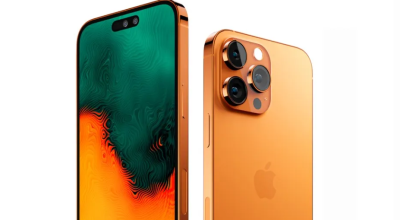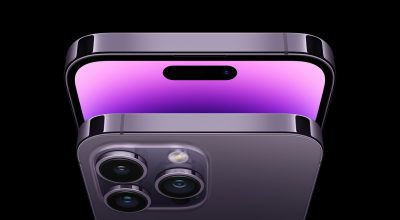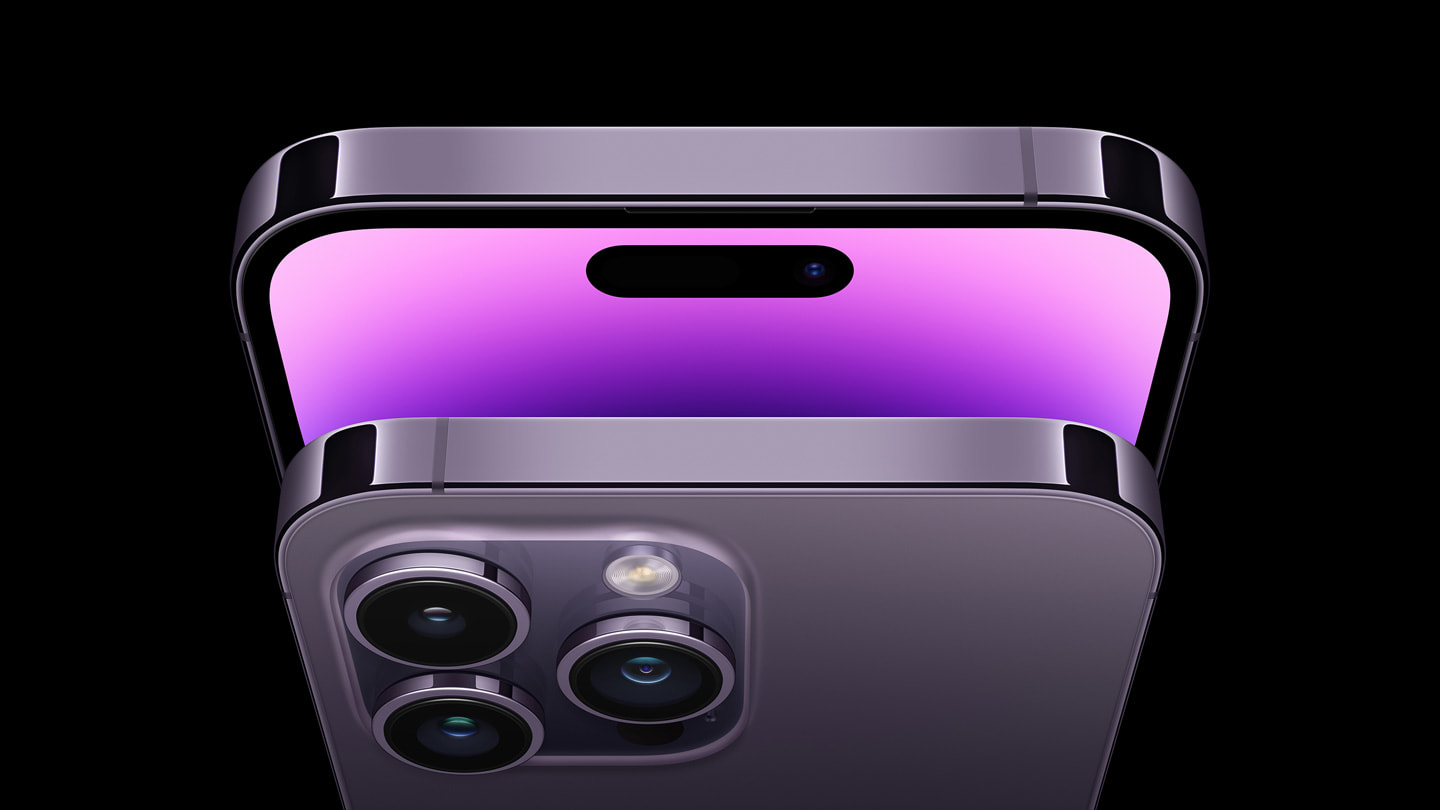
Apple just unveiled 8 different products during it’s event organized on September 7th. The iPhone 14 series was the major highlight of the event. The 14 series consists of 4 different models named iPhone 14, iPhone 14 Plus, iPhone 14 Pro and iPhone 14 Pro Max. The iPhone 14 Plus replaces the Mini model that Apple made for two generations. Now let us learn about these new smartphones and their availability in Nepalese market in detail:
iPhone 14/Plus
iPhone 14
The iPhone 14 remains the same as the iPhone 13 physically. It even retains the same A15 bionic chipset that was seen on the iPhone 13 series previously. It however gets one extra GPU core thus making a 5-core A15 chipset which was only seen on the 13 Pro models. The iPhone 14 boasts 6.1 inches Super Retina XDR OLED screen with support for HDR 10 Dolby vision having a peak brightness of 1200 nits.
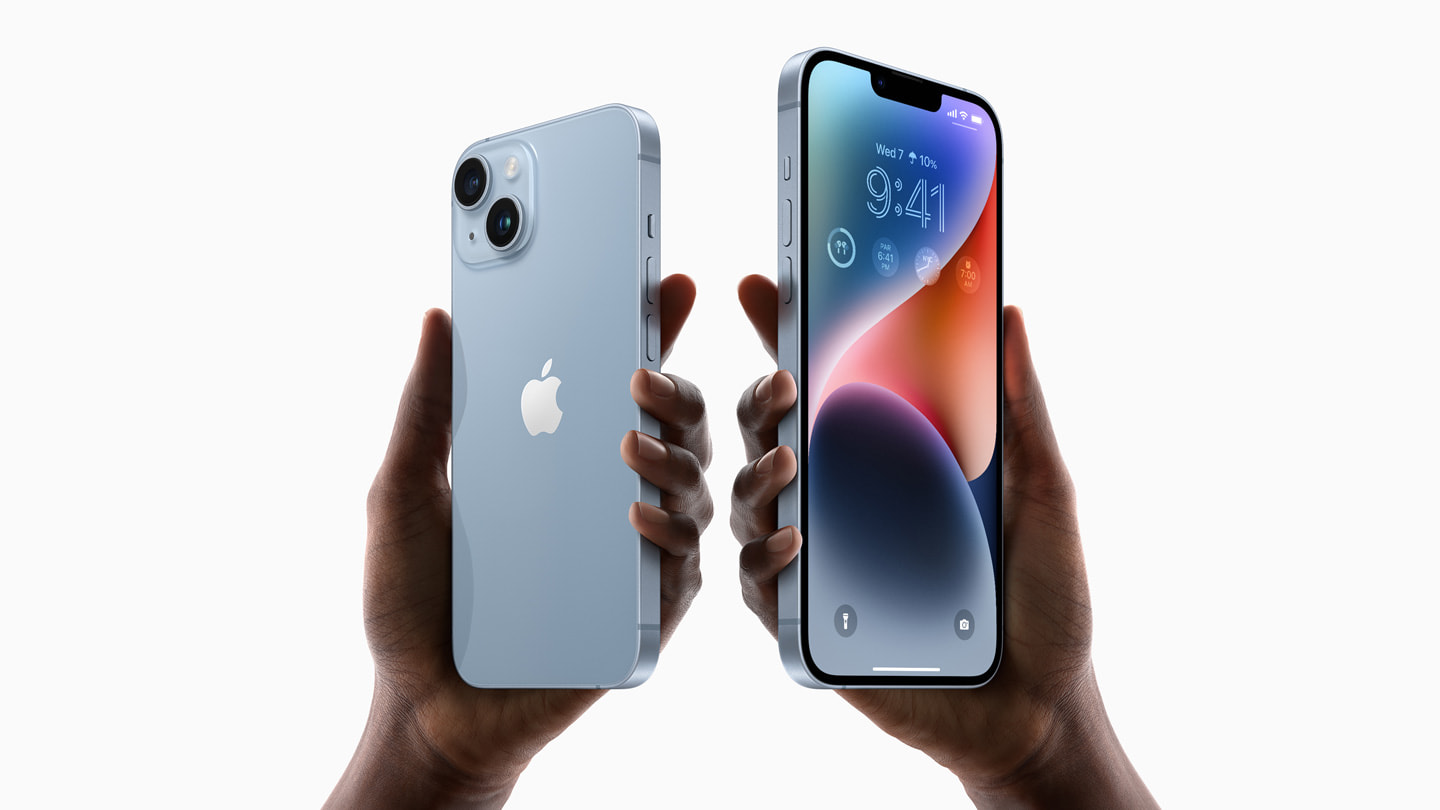
iPhone 14 Plus
Similarly the iPhone 14 Plus is the newer addition to the iPhone family. It replaces the Mini model from previous iteration of the Apple lineup. Nonetheless the 12 Mini and 13 Mini are still available if you wish to buy them. Apple decided to back out from producing newer version of Mini because of disappointingly lower sales volume. The 14 Plus houses a bigger 6.7 inches Super Retina XDR OLED screen with support for HDR 10 Dolby vision having a peak brightness of 1200 nits. Apart from these physical differences there is no major differences between the two models. They both have glass sandwich design featuring an aluminum frame. They both are IP68 certified which makes them water resistant up to 6 meters for 30 minutes.
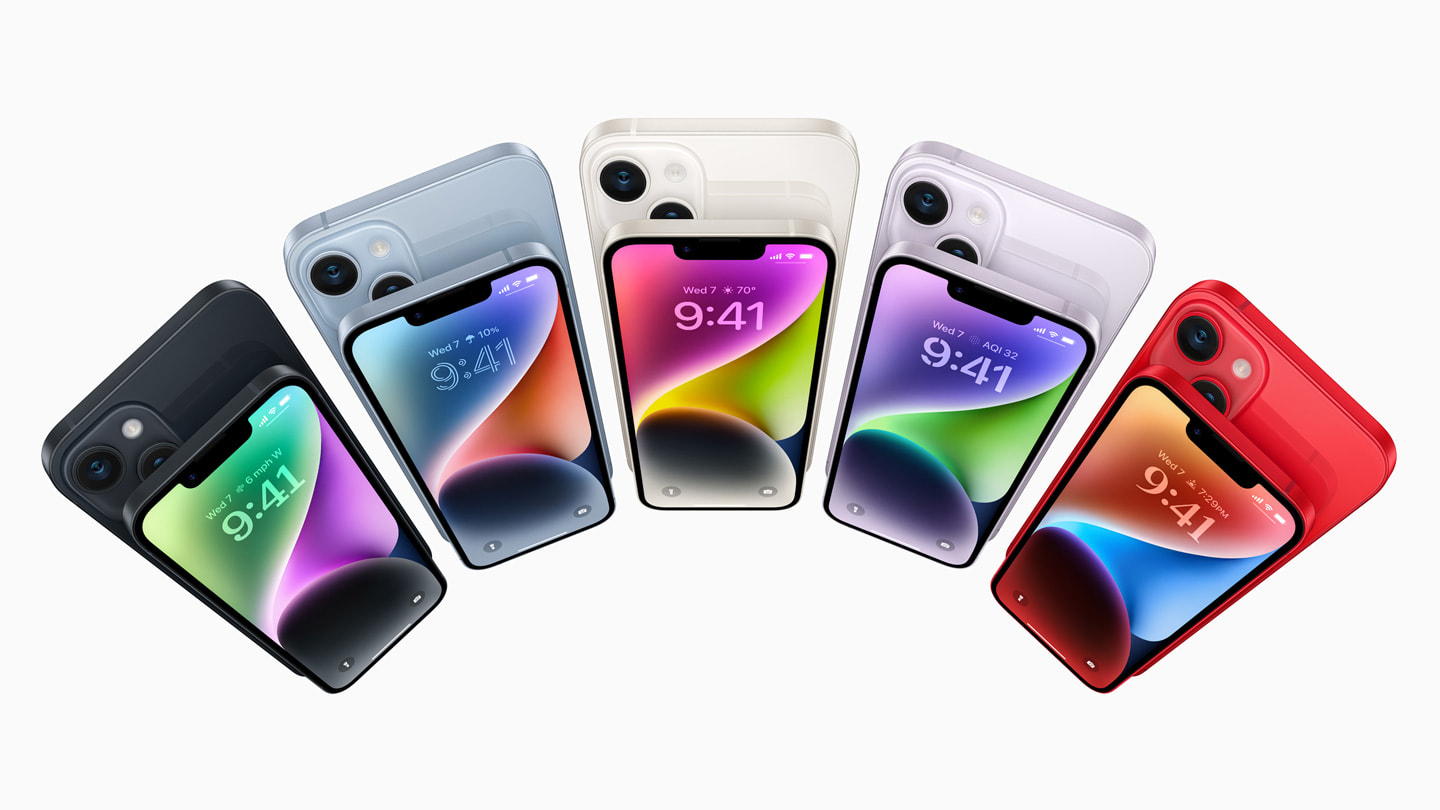
The Insides
On the software front both of them come with the latest iOS 16 out of the box. The chipset is a bit letdown this year on the non pro models as they get the same 5nm A15 bionic as previous year’s pro models with 5-core GPU and 6-core CPU. This is not a good thing as many elements on the phone like the camera performance, artificial intelligence capabilities, longevity everything depends on the chipset. However Apple claims that this A15 bionic is still ahead of it’s competition.
Cameras
Both the models feature 12 MP camera. The main camera uses a larger sensor with 1.9µm pixels (up from 1.7µm) and has a brighter f/1.5 aperture (up from f/1.6). The end result is that it captures 49% more light compared to the iPhone 13 camera.
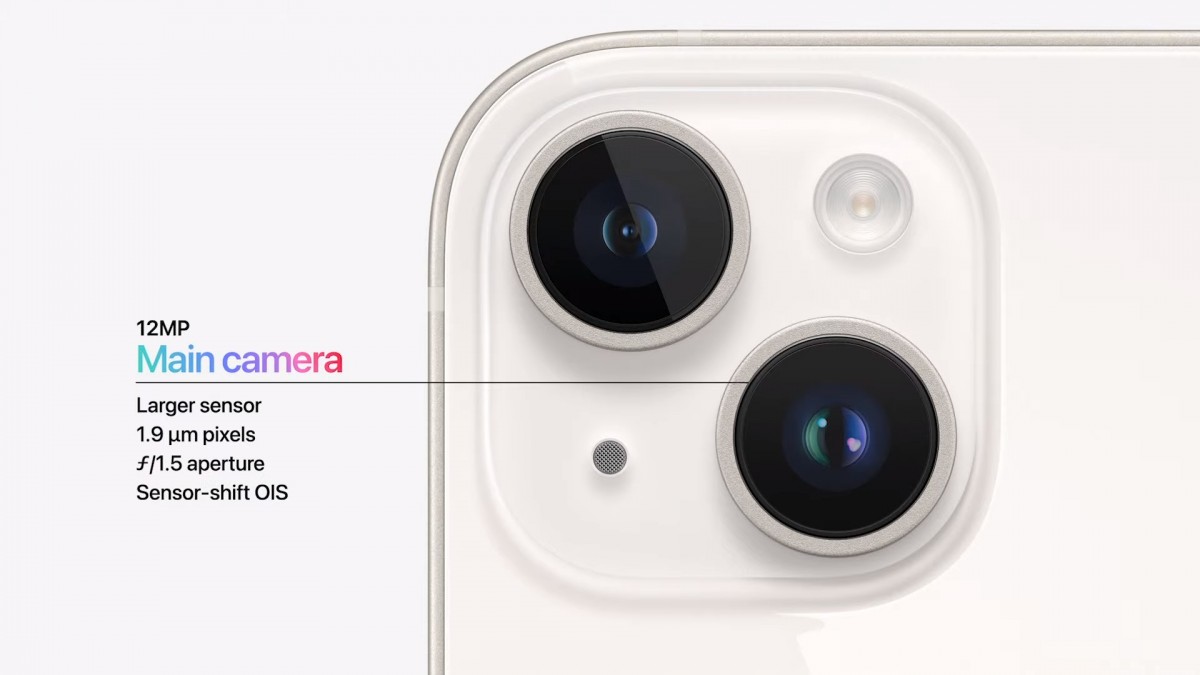
Similarly there is a new software feature called Photonic Engine which is build on the Deep Fusion. Apple claims this Photonic engine improves the low-light photos 2x on the front camera, 2x on the ultrawide and 2.5x on the new main camera compared to the iPhone 13. There is a new feature called “action mode” on the camera which provides better video stabilization.

On the front iPhone 14 pair still uses a notched design for the TrueDepth camera, however, it now has autofocus for the first time. Also, hardware improvements allow it to capture 38% more light for better low-light performance, in part thanks to the brighter f/1.9 aperture (up from f/2.2).
Connectivity
iPhone 14 series has 2 new updates on the connectivity front. Firstly the US regions models will only have eSIM support as there will no longer be a physical sim tray. Apple acclaimed the ability to quickly swap between multiple eSIMs and add carriers without visiting one of their offices. Dual eSIM is supported.
Similarly another big update is the satellite feature which allows users to send messages without bulky antennas at regions when cellular connectivity is not available. However the bandwidth is limited in this kind of communication thus users can send and receive only small messages. It’s use case is mostly emergency SOS at areas where other form of connectivity is nil. The satellite service will launch in November for users in the US and Canada and iPhone 14 buyers get a free 2-year subscription. Similarly, the iPhone 14 series has a new feature called crash detection which uses it’s new accelerometer which can detect up to 256G.
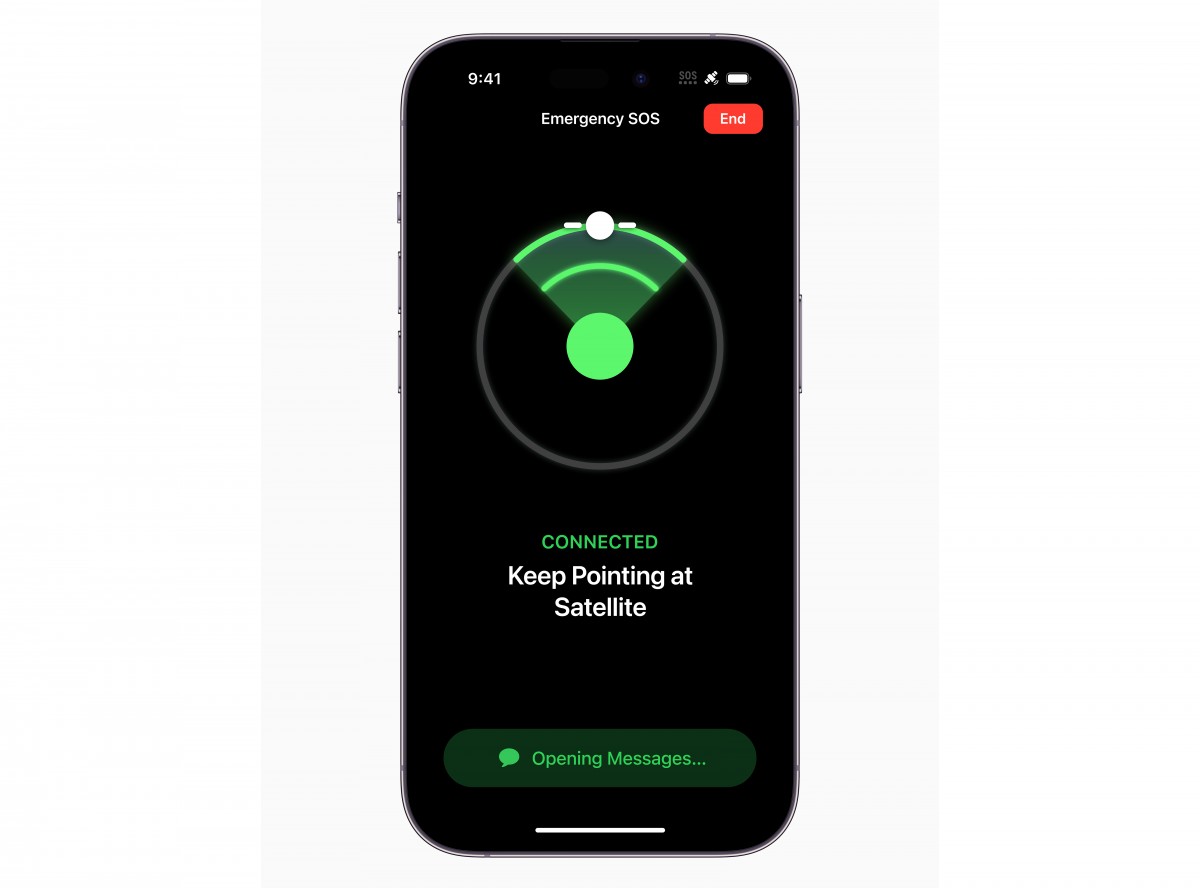
iPhone 14 Pro/Max
After the unveiling of the iPhone 14 and the iPhone 14 Plus, Apple unveiled the pro lineup of it’s smartphones. They have new camera modules, newer notch design and a new chipset. The connectivity features like the eSIM, Satellite services and Crash Detection are present on the Pro models as well.

Display
The iPhone 14 Pro features a 6.1 inches and the 14 Pro max features 6.7 inches screen which is now brighter at peak 2000 nits peak for HDR content. As it already came with variable refresh rate, now the range is even wider as it can refresh from 1 HZ to 120 HZ per second. Because of the screen being able to refresh to 1HZ the Pro models now supports Always-On Display. The time, widgets, and Live Activities will be visible at a glance on this Always-On Display. It now houses a new pill shaped notch which we will talk about in a while.
Chipset
The Pro models use the Apple’s latest A16 bionic which houses 6-core CPU with 2 performance and 4 efficiency cores. The GPU here is the 5-core version. It consists of 16-core neural engine. Apple claims the CPU is 40% faster than the competition, while its two high performing cores require 20% less power than the ones in the A15. The 16-core Neural Engine included in the A16 is capable of 17 trillion operations per second, while the 5-core GPU comes with 50% higher memory bandwidth.
Camera
The main camera on the back has a “quad-pixel” sensor, which is a first for Apple but rather old in the Android world right now. The sensor has 48MP resolution, and by default the phone will shoot in 12MP. The camera has an f/1.78 aperture, and 1.22μm pixel size before binning – 2.44μm with binning. You also get second-generation sensor shift stabilization, as well as full focus pixels.
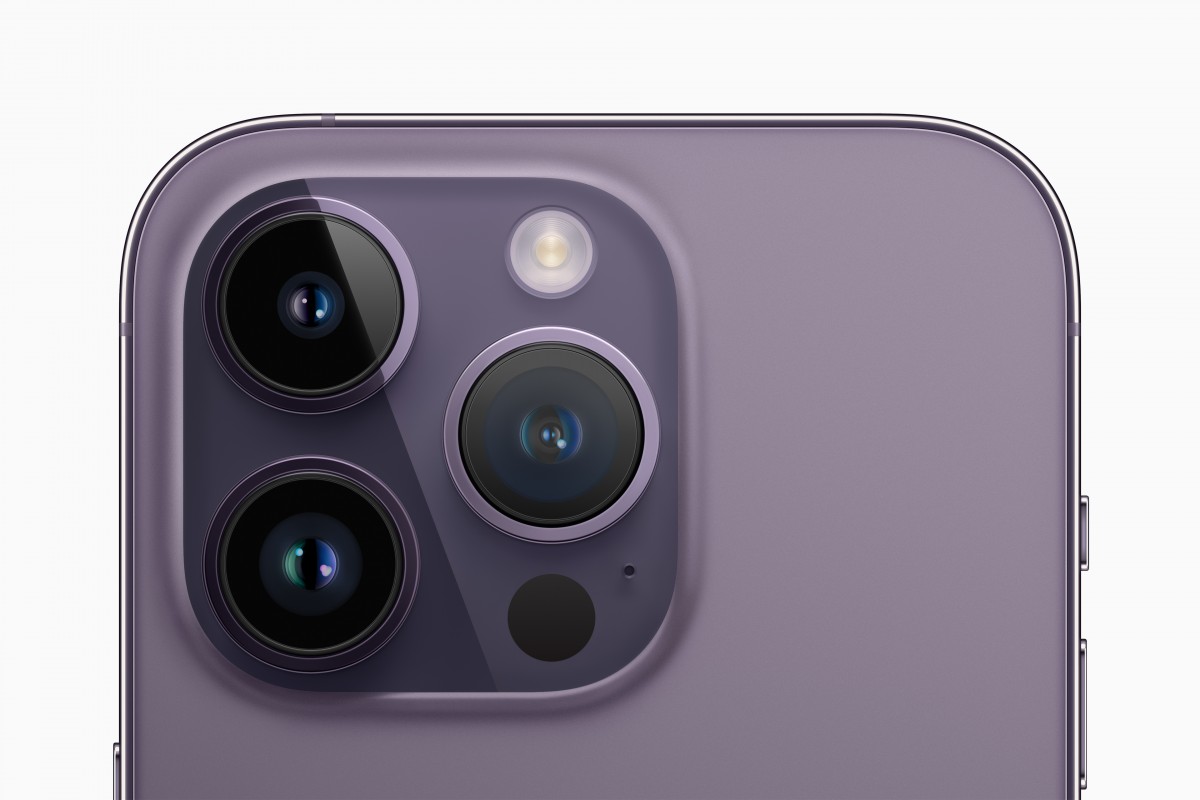
The high-res main sensor enables a new intermediary zooming step of 2x in the camera app, by cropping from the middle, perfect for Portrait Mode shots. There’s a new 12MP ultrawide camera in tow, with large 1.4μm pixels, delivering sharper images with more detail and improving on macro shots too. Finally, the 3x telephoto camera is still there and has optical image stabilization.
Dynamic Island
The main visual change of this year’s Pro model is the pill shaped notch which Apple likes to call the “Dynamic Island”. It is smaller than the notch and the camera it houses is also 30% smaller. They also have moved the proximity sensor under display. There are black pixels around the cutout which helps in creating some cool looking dynamic effects. The black region around the cutout can expand to show information from different built-in and third party applications.
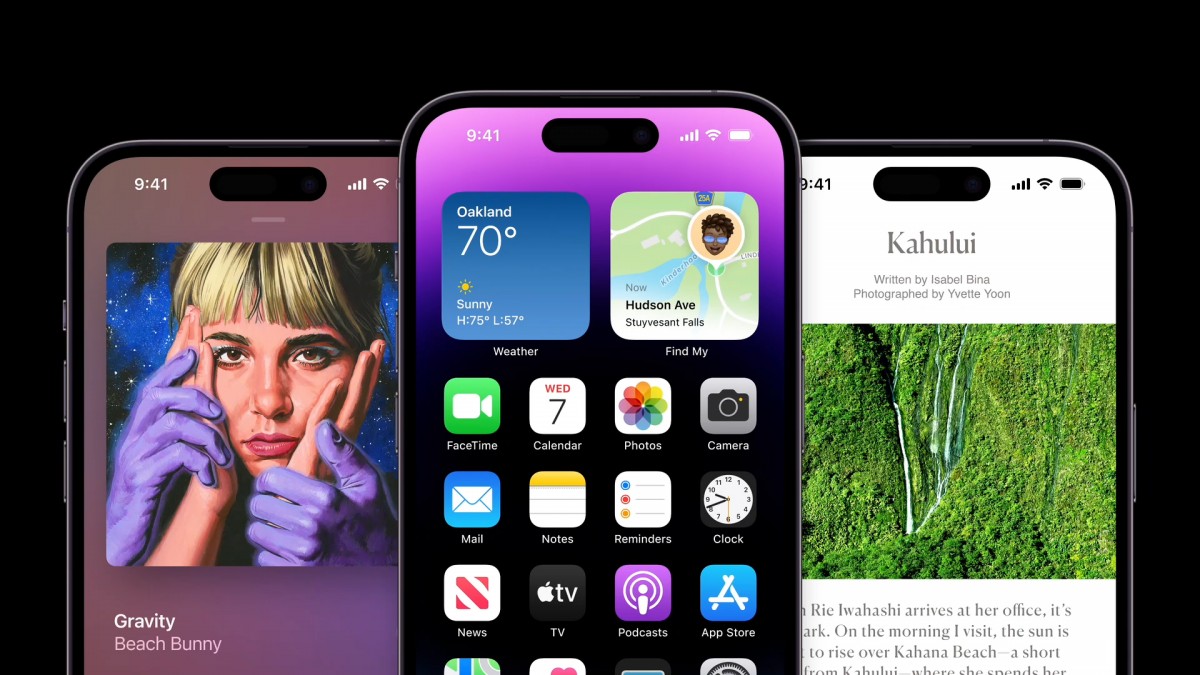
Pricing and It’s availability in Nepal
The regular iPhone 14 retails at $799 for the base 128 GB model and is available in 256 GB and 512 GB models as well. The iPhone 14 Plus retails at $899 for the base 128 GB model and is available in 256 GB and 512 GB models similar to the iPhone 14. The Pro models start at $999 for the iPhone 14 Pro with 128 GB of storage and at $1099 for the iPhone 14 Pro Max. The Pro models are available in 256 GB, 512 GB and 1 TB storage options. Mind you all these prices are US only.
Regarding the availability of the latest 14 series in Nepal, we currently face a strong import ban on premium phones priced above $300. Thus we doubt it will be available anytime soon officially in Nepalese market. Apple authorized stores like Evostore and Oliz Store is where you can buy them once they become available. We will make sure to update it here once the phone launches here in Nepal.












